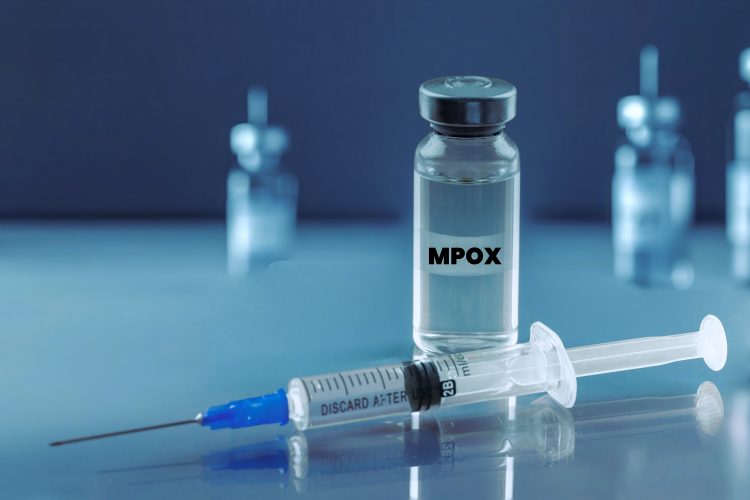mRNA vaccine provides enhanced protection against mpox
Posted: 6 September 2024 | Drug Target Review | No comments yet
The mRNA vaccine candidate more effectively limited symptoms and disease duration in non-human primates.


A study, funded by Moderna, the National institute of Allergy and Infectious Diseases (NIAID) and the National Institutes of Health (NIH) compared an investigational mRNA mpox vaccine from Moderna to a currently licensed Modified Vaccinia Ankara (MVA) vaccine. The new mRNA vaccine candidate more effectively limits symptoms and disease duration in non-human primates infected with a lethal strain of mpox.
Alec Freyn, virology researcher at Moderna and co-first author, stated: “This study is the first in a nonhuman primate model where we compare an investigational mRNA mpox vaccine directly to the current standard of care.” He continued: “When we put those vaccines head-to-head in primates, we saw improved responses from the mRNA vaccine in terms of not just protection from survival but also fewer lesions, shorter duration of disease, and less viral shedding in the blood and respiratory tract.”
Originally designed to combat smallpox, MVA vaccines contained weakened whole viruses. Yet, this weakening means that they provide limited protection compared to other vaccines. The use of mRNA technology enables vaccines to be developed to only include parts of the virus that are most likely to induce a lasting, protective immune response without exposing the person to a whole infectious virus. The investigational mpox mRNA vaccine is composed of four viral antigens that are essential for the virus to attach and enter host cells.
Previous research has demonstrated that mRNA vaccines can prevent lethal mpox infections in nonhuman primates but their ability to lessen disease severity has not been tested. Therefore, to directly compare the investigational mRNA vaccine to MVA vaccines, the team vaccinated six macaques with each vaccine and then exposed them to a lethal strain of mpox virus eight weeks after their initial vaccine dose. Also, they exposed a control group of six unvaccinated animals to mpox. Then, after infection, the researchers monitored the macaque’s health for four weeks and collected blood samples to study their immune response.
Disease severity
Five of the unvaccinated control animals did not survive, whereas all 12 vaccinated animals did, regardless of which vaccine was used. The mRNA-vaccinated animals lost less weight and had fewer lesions than MVA-vaccinated animals, despite both vaccines limiting disease severity compared to the control group.
Furthermore, the mRNA vaccine shortened disease duration, measured by the number of days for which the animals showed lesions, by more than 10 days compared to the MVA vaccine. Lower viral loads were in the mRNA blood and throat swabs, indicating that it might be more effective at reducing transmission.
Jay Hooper, virologist at the United States Army Medical Research Institute for Infectious Diseases and senior author explained: “With the mRNA technology, we’re able to produce a vaccine that gives quite potent responses with a very tolerable safety profile…We’ve been trying to get a vaccine that will prevent spread like ACAM2000® but without the safety issues. This is showing that mRNA technology might be able to fill that niche.”
Immune response
The mRNA vaccine resulted in a higher number of antibodies and antibodies with more diverse immune functions. Different classes of antibodies that were associated with enhanced viral control and fewer lesions were identified.
Furthermore, the vaccine demonstrated potential to induce cross-immunity to other Orthopoxviruses, whereas the MVA vaccine results in smaller immune responses that are not as strongly neutralising for more remotely related Orthopoxviruses. Serum from the macaques immunised with the mRNA vaccine “neutralised not only mpox but also vaccinia, cowpox, rabbitpox, camelpox, and ectromelia virus,” Freyn said. “We believe that this vaccine may protect from other Orthopoxvirus threats that may emerge in the future.”
Now, Moderna’s mRNA-1769 vaccine is being assessed in a Phase I/II clinical trial (NCT05995275) to determine the safety, tolerability and immune response of a range of doses of mRNA-1769.
This study was published in Cell.
Related topics
Antibodies, Vaccine, Vaccine development, Virology
Related conditions
monkeypox
Related organisations
Moderna, National Institute of Allergy and Infectious Diseases (NIAID), National Institutes of Health (NIH), United States Army Medical Research Institute for Infectious Diseases (USAMRIID)
Related people
Alec Freyn (Moderna), Jay Hooper (USAMRIID)








